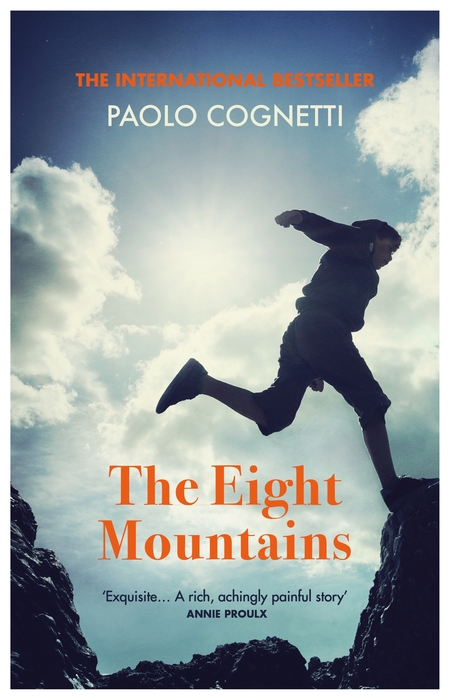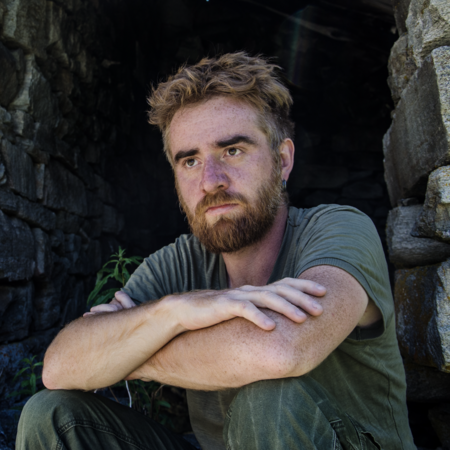People often define themselves in terms of context and relationships, and both these important markers of human expression are on poignant display in The Eight Mountains (Le otto montagne) by Paolo Cognetti, a novel which explores how both impact the life of one young Italian man who is surrounded by so much possibility, much of which he struggles to translate into something lasting and meaningful.
Pietro is the son of two people who have always loved the mountains of northern Italy.
His mother and father met in the mountains and it comes to define their life together over and over again, with the Monte Rosa, a massif which runs between ranges in Italy and Switzerland, a refuge and a source of familial tension, particularly for Pietro’s dad who works in the city of Milan but for whom the mountains are a place of relief and almost salvation from the many demons nipping at his heels.
It is inevitable, of course, that Pietro is drawn into this almost obsessive love of the mountains which manifests in his father’s need to hike up every mountain along various paths, sometimes onto glaciers, always at speed and with a need to prove his is the most unique connection to these soaringly massive cathedrals of nature, the one that matters most.
His son observes at one point that some other climbers seem to resent the way in which he needs to conquer the mountains and while he does find a kind of reverie there, there’s also a competitive need to be the best, to almost own them, a product perhaps of a childhood spent in state care where a sense of belonging was often tenuous at best.
“Then gradually these thoughts also dispersed, and I lay awake listening. I was used by now to the sounds of the night, and I could recognize them one after another. This, I thought, is the water flowing into the drinking trough. This is the bell on the collar of a dog on its nocturnal wanderings. This is the buzzing of Grana’s solitary electric street lamp. I wondered whether Bruno in his own bed would be listening to the same sounds. My mother turned a page in the kitchen, while the crackle of the stove lulled me to sleep.” (PP. 28-29)
Suffused with a poetic understanding of relationships, both between people and between people and nature, The Eight Mountains is enthralling, if occasionally emotionally remote – for a story so soaked in emotion, there are times when Pietro, by his very reticence of observation, seems to keep the narrative in check to a slightly enervating degree – filled with a narrative that spans decades of Pietro’s life.
Beginning around the age of 11, Pietro, named after an uncle whose own relationship with the mountains ended tragically, finds himself taken to the village of Grana in the Piedmont region of northern Italy, for summer holidays where his father often leaves his wife and son alone while he goes up the various mountain pathways, leaving notes in visitor books that seem to need to best everyone around him, to establish that his is the most worthwhile and authentic experience of these wildly imposing places.
At first, Pietro wants to join him, a desire initially rebuffed and then almost suffocatingly embraced by his father Giovanni but as the years go by, he steps away from his father’s singular need to escape into the mountains, causing a rift that is never really able to be breached.
It is this relationship between father and son that forms the central core of the narrative but equally as important is the one between city boy Pietro and country boy Bruno whose family, bar his mother, treat him with disinterest, if not active hostility and for whom Pietro’s family are an oasis of familial harmony and safety.
While Pietro’s relationship with his father is inconsistent and wildly problematic, and the one with his attentive and loving mother is distant and somewhat removed though never adversarial, his close and enduring friendship with Bruno, though stretched thin and neglected at times, always sustains itself.
It is the one constant in The Eight Mountains, a quietly-expressed but powerful emotional bond which stands in for the relationship that exists between man and mountain; even as Pietro comes and goes from Grana, even into adulthood, whether it’s to Milan or Turin, or all the way to Nepal as a documentary filmmaker, Bruno stays behind tending to his family farm, building and never straying, despite the opportunity to do so, from the quiet mountain world he has always called home.
The friendship between these two boys, then men, mirrors that between Giovanni and the mountains, but also between Bruno and Pietro’s own parents who in some ways connect more authentically to their son’s friend than they do to their son himself.
There is a moving richness to this book which celebrates the many joys that come from the bonds between people, especially men, but also how they can feel to go beyond much more than half-expressed thoughts and truncated gestures.
“The centre of my world in those years was the house that I had built with Bruno. I would stay there for long periods between June and October, and sometimes would take friends who would immediately fall in love with the place. In this way I had up there the company that I lacked in the city.” (P. 177)
For all its emotive thoughtfulness, all of it expressed by an author who understands the human condition and its many soaring highs and imprisoning lows, The Eight Mountains can feel quite tamped down at times.
Much of that has to do with Peitro himself who though he is an arch observer of the people around him, and foundationally self-aware of his own shortcomings, still seems to be sitting far into background, existentially speaking even as he occupies the central ebb and flow of the novel.
For the most part though, The Eight Mountains is quietly moving with a nuanced, carefully expressed sense that while we often rush to embrace the soaring freedom that nature can give us and its attendant sense of possibility, we are also captive to who we intrinsically are which means even away from home, as Pietro’s family are in the small, barely-populated village of Grana, we are still very much confronted by our limitations.
An evocative examination of what it means to be flawed and alive, and to cling to relationships, both to people and place, as if they are capable of saving you – sometimes they are but too often alas, they cannot save you from yourself, no matter how toweringly majestic or important they may be – The Eight Mountains is a beautifully written, profoundly affecting exploration of how we long for so much but don’t always get it, and how trying to reclaim it may not always take you where you expect to be led.

